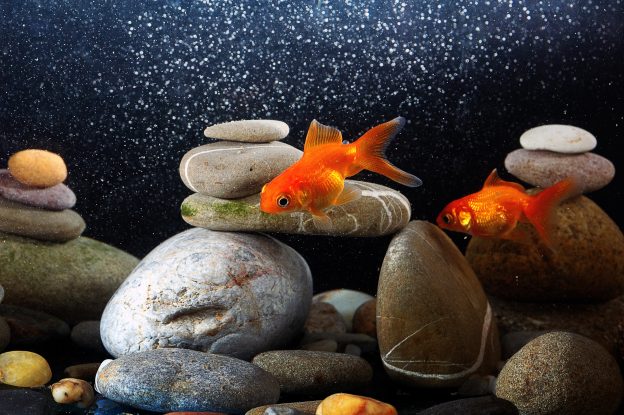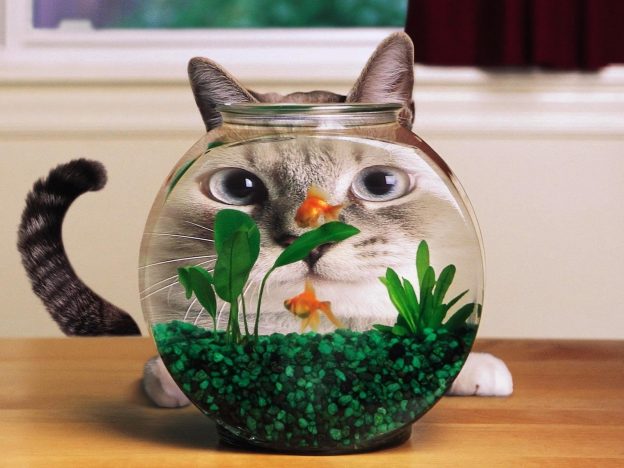Most animals need to sleep in some way, shape, or form in order to replenish energy, but how fish sleep is especially fascinating to humans. After all, the fish don’t have beds, they can’t stretch out, they don’t go to a different room for silence, and most don’t even have eyelids! It’s hard to believe they sleep at all, but they do … in their own way.
How Fish Sleep
When a fish sleeps, it’s more like a human daydreaming as opposed to fully sleeping. When we daydream, we’re somewhat relaxed and stare off into space, but we’re alert enough to keep ourselves from falling over or walking into an electrical pole. When fish zone out, they’re in a calm state and have a slower metabolism, but they can keep their balance and stay on guard.
Fish have different sleeping patterns depending on their breed. Generally, where they spend most of their waking hours in an aquarium is likely where they will remain while they sleep. Some fish sleep under rocks, in holes, or in nests they create in the gravel, which is one reason why it’s important to include live or dry rock, real or artificial plants, gravel, and decor in your aquarium.
Some fish sleep in the dark, while others sleep in the light, which is why you should install lighting in your aquarium that can be turned on and off. It really depends on their breed and how they would have slept in nature. In the wild, fish that live near coral, for example, tend to stay awake during the day and sleep at night to avoid predators, who likely can’t see as well in the dark.
How much fish sleep depends on their breed, age, and what is going on in their world. Some fish are known to sleep all night, while fish that feel endangered will remain alert. A new mother will tend to the young at all hours, and some fish, like tuna, don’t sleep at all.
One especially interesting fact, as noted by the National Sleep Foundation’s Sleep.org, is that fish can experience sleep disorders and sleep deprivation. They can experience insomnia specifically, especially if they’re feeling unsafe. When fish don’t get enough sleep, they often won’t function properly, much like humans.
Differences Between How Fish Sleep and How Humans Sleep
Some of the differences in sleep patterns of humans and fish are very obvious, not the least of which is we’d need a floating lounger to be able to sleep in the water. Others, however, are not so clear to see.
• Humans experience REM sleep, which, simply told, is when we dream. Fish don’t go into REM sleep, at least not as far as researchers can tell.
• When humans sleep, especially in the REM stage, they’re in a mild paralysis. Fish, on the other hand, have to keep moving slightly during their sleep for ventilation of their gills. It’s like our breathing; even though we’re asleep, the respiratory cycle continues.
• With the exception of some breeds of sharks, fish don’t have eyelids and therefore sleep with their eyes open. When humans do that, it’s considered a sleep disorder – a phenomenon known as nocturnal lagophthalmos.
• Newborn fish seem to want to live life to the fullest by seizing every moment of every day. Many won’t even sleep at all until they become adults.



